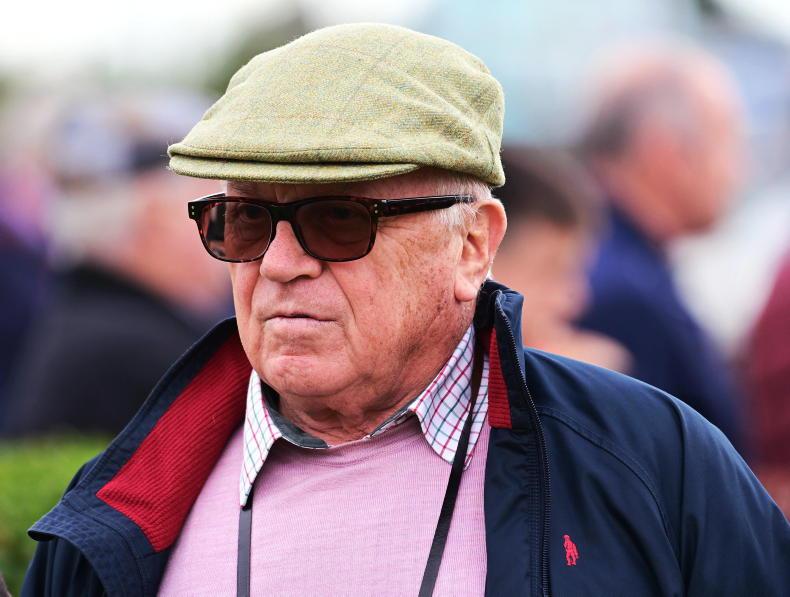THE major stakeholders in British racing issued a joint-statement on Wednesday evening, indicating a fresh willingness on their behalf to work together for the good of the industry.
Although the quality of British racing continues to be held in the highest esteem internationally, the sport there has been struggling to keep up with international prize money levels. A significant number of British-based racehorse owners have moved horses to other jurisdictions or sold horses to race abroad.
Following an initiative from former British Horseracing Authority chairman leader Peter Savill, a group of 18 industry leaders have been meeting over the past two days to discuss ways to tackle to sport's main issues.
The meeting was attended by representatives of the BHA, Great British Racing, Thoroughbred Group, and the Racecourse Association (RCA) and racecourses.
The strategy group also heard a presentation from Savill, "and considered other submissions from a wide range of groups, all of which will continue to be absorbed into the decision-making and setting of areas of focus."
Industry strategy
On Wednesday evening, the group issued the following statement regarding the development of an industry strategy: "An extremely positive meeting has been held where there was a shared acceptance of the challenges facing the sport and agreement of the need to work together to fix them. The industry leaders present were unanimous on the need for serious and radical changes to make long-term improvements to the industry.
“The result is an agreement on areas of focus for a strategy which will be developed in the coming months, underpinned by all parties agreeing to share data to inform decision making, with the aim of building a sustainable model for British racing and identifying areas for growth.
“There was also an agreement that action is required to begin to address competitiveness in the short term, and a package of measures will be developed with this objective.”
As a result of the meeting, leaders have agreed that the sport’s strategy for 2024 and beyond should include a focus on significant innovation in the way that racing is presented, in particular our best races, with a view to improving competitiveness, growing attendances, ownership and the supply of horses, and engaging new audiences both domestically and internationally.
In addition, all parties have agreed to improve the sharing of data across the sport."
The statement said that the areas of focus will include, but not be limited to:
• the organisation of the racing product, including the fixture list and race programme
• presentation and promotion of the sport’s most high-profile events
• ensuring that the sport’s promotional functions are properly structured and resourced
• using data to better understand customer needs and to ensure industry decisions are based on evidence
• working with betting operators, broadcasters and other partners to optimise growth
• improving the owner experience and encouraging greater investment in ownership, in particular through affordable investment
• continued focus on equine welfare
• investment in our people and recruitment, welfare, development and retention of staff and diversity and inclusion
• integrity and regulation
• environmental sustainability
Competitiveness
The statement continued: "In addition the sport’s leaders have agreed that, in the short term, a package of initiatives will be developed to begin to address competitiveness of the racing product in 2023. This package will include looking at the composition of the race programme, scheduling and timing, alongside extending initiatives such as flexible race programming.
"A great deal of work is already underway in a number of these areas. Further areas of focus are likely to be developed through the onward discussions with stakeholders.
"Development of the strategy will involve further, ongoing discussions with industry participants, owners, customers and other related industries such as the betting and broadcasting industries, alongside partners such as the Horserace Betting Levy Board (HBLB) and Racing Foundation (RF).
"The development and delivery of this strategy will be led by the BHA. It will be underpinned by a new industry governance structure which allows for greater progress by providing appropriate decision-making structures for commercial decisions.
"Measurable objectives and targets for growth and detailed timescales and project plans will be developed as part of this process, and initiatives and developments arising will be published on an ongoing basis."
The session was facilitated by the BHA’s Director of Strategy and Change Alison Enticknap, alongside consultant Alan Switzer. The group membership was:
Julie Harrington: BHA Chief Executive
David Jones: BHA Senior Independent Director
Ruth Quinn: BHA Director of International Racing and Racing Development
Joe Saumarez Smith: BHA Chair
Rod Street: GBR Chief Executive
Richard Wayman: BHA Chief Operating Officer
Racecourses
David Armstrong: RCA Chief Executive
Ilona Barnett: RCA Board Member / Managing Director Stratford racecourse, representing small independent racecourses
Martin Cruddace: ARC Chief Executive
William Derby: York racecourse Chief Executive and Clerk of the Course, representing large independent racecourses
Jonjo Sanderson: RCA Board Member / Wetherby racecourse Chief Executive, representing small independent racecourses
Nevin Truesdale: Jockey Club Chief Executive
Wilf Walsh: RCA Chair
Thoroughbred Group
Paul Johnson: NTF Chief Executive
Charlie Liverton: ROA Chief Executive
George McGrath: NARS Chief Executive
Ian McMahon: PJA Chief Executive
Charlie Parker: TG Chair and ROA President
Claire Sheppard: TBA Chief Executive


 This is a subscriber-only article
This is a subscriber-only article
 It looks like you're browsing in private mode
It looks like you're browsing in private mode









SHARING OPTIONS: